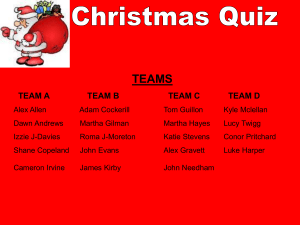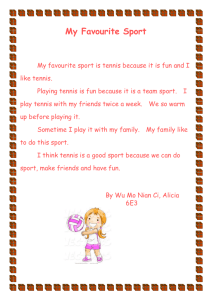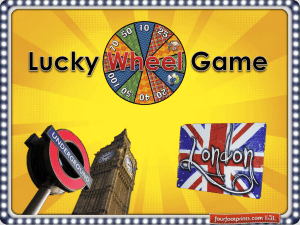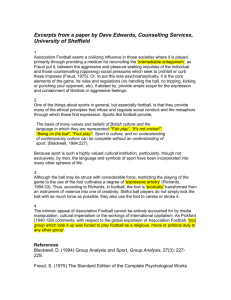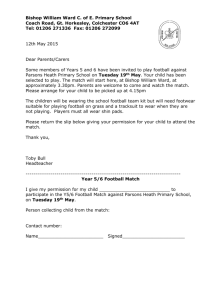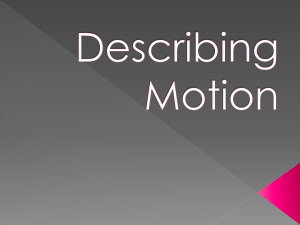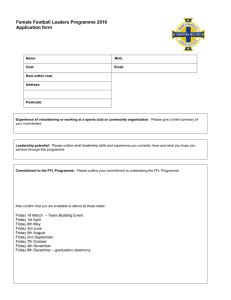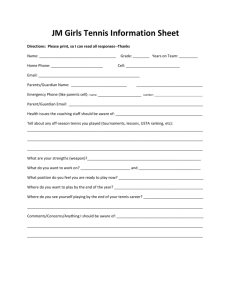3 He doesn`t play football.
advertisement
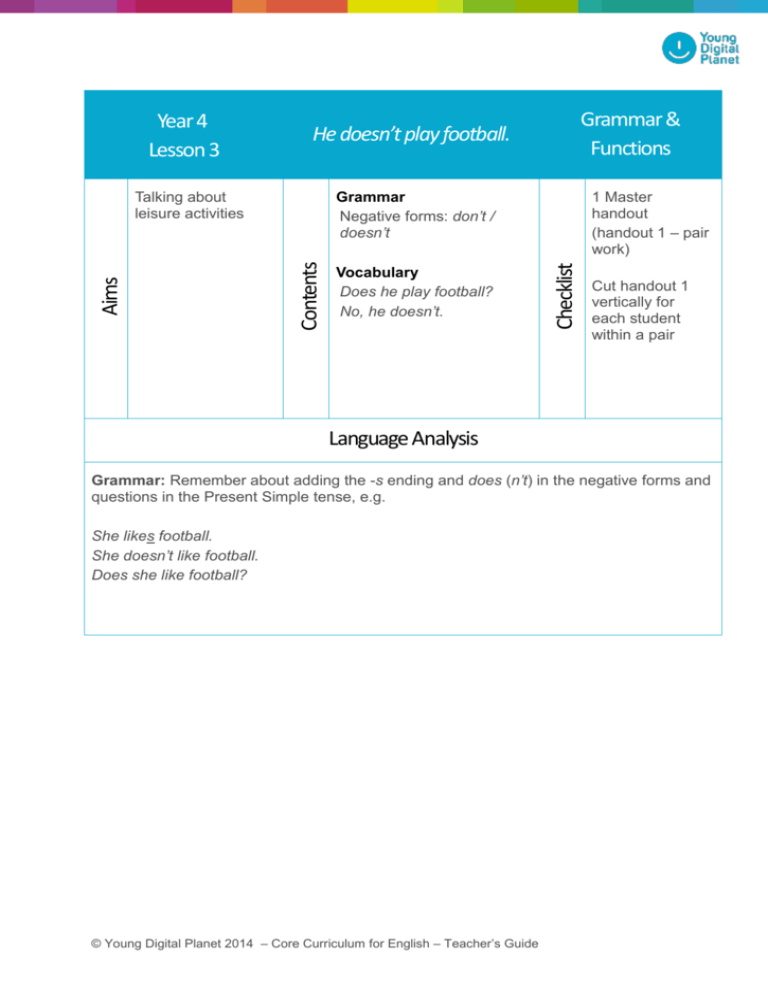
Grammar Negative forms: don’t / doesn’t Contents Talking about leisure activities Aims Grammar & Functions He doesn’t play football. Vocabulary Does he play football? No, he doesn’t. 1 Master handout (handout 1 – pair work) Checklist Year 4 Lesson 3 Cut handout 1 vertically for each student within a pair Language Analysis Grammar: Remember about adding the -s ending and does (n’t) in the negative forms and questions in the Present Simple tense, e.g. She likes football. She doesn’t like football. Does she like football? © Young Digital Planet 2014 – Core Curriculum for English – Teacher’s Guide Procedure Warm-up Off the screens 1. Ask the Ss to work in pairs. 2. Ask each student to think about a friend of theirs or a member of their family. 3. The Ss’ task is to talk with each other about the chosen people by asking each other questions, like: Does he/she like sport?, Does he/she play computer games? Which instrument does he/she play?, etc. 4. After the interview, ask each student to say what they have learnt about their partner’s chosen person, e.g. John likes sports. He doesn’t play football. He likes tennis. 5. Monitor the Ss and correct whenever necessary. Screen 2 Lucy: Look! This is your cousin Sam. He likes music!: Yes, he does. Lucy: Does he play the piano? Ann: No, he doesn’t. He plays the guitar. Ann: Who’s this? Lucy: This is Kim. She likes sport! Ann: Does she play tennis? Lucy: No, she doesn’t. She plays football! Ann: What sports do you play, Lucy? Lucy: Well, I don’t play tennis and I don’t play football – but I play computer games! Exploit the scene by asking the Ss to describe what they can see. This will help students with pronunciation and meaning. Note: Allow the Ss to watch and listen to the animation for a few times to consolidate the dialogue. © Young Digital Planet 2014 – Core Curriculum for English – Teacher’s Guide Screen 3 Key: (from left to right) 1 doesn’t 2 doesn’t 3 don’t 4 doesn’t 5 don’t Note: The Ss choose the correct auxiliary verb: don’t/doesn’t depending on the person in the sentence. Screen 4 Lucy: Do your family like sport, Ann? Ann: Well, my parents – yes and no! … My dad … he watches a lot of sport and he plays football. But my mum – no, she doesn’t watch sport or play it. My sister? Yes, she loves playing basketball and my brother likes swimming. I don’t swim but I play tennis. And you know, my grandma plays badminton!.And my grandpa doesn’t play sports but he walks a lot. Key: 1T2T3F4T5T6T Note: Allow the Ss to listen to the audio for at least two times before they choose the correct option. © Young Digital Planet 2014 – Core Curriculum for English – Teacher’s Guide Screen 5 Key: see below (random order) Note: Ss match the questions with the answers, paying attention to the person in each sentence. Screen 6 Audio 1: Ann: This is my cousin Sam. Does Sam play the piano? No, he doesn’t. Audio 2: Ann: This is Kim. She likes sport. Does she play tennis? No, she doesn’t. Audio 3: Ann: This is Lucy. Does she play tennis? No, she doesn’t. Audio 4: Ann: And this is Alex. Does he play football? No, he doesn’t. Give the Ss these instructions for the ‘Listen and say’ activity. The aim is to practise a short natural dialogue. 1. Look at the pictures. 2. Click on the audio and listen to the © Young Digital Planet 2014 – Core Curriculum for English – Teacher’s Guide dialogue. 3. Press ‘pause’ and listen again if you want to, to consolidate the dialogues. Now it’s your turn. This is a ‘free practice’ stage. The aim is personalisation. Tell students to work in pairs and ask and answer the questions. Additional activity – Handout 1. Ask the Ss to work in pairs. 2. Copy the handout and give it out to each pair of Ss, 6 questions to S1 and 6 questions to S2. 3. Ask the Ss to interview each other about various people. 4. The Ss answer each other’s questions and they can also add some more information. 5. Monitor the Ss and correct whenever necessary. 6. At the end you can have a class round-up and Ss can talk about the different people they heard about. © Young Digital Planet 2014 – Core Curriculum for English – Teacher’s Guide Handout STUDENT1 STUDENT 2 1 Does your mother like sport? 1 Does your father watch sport on TV? 2 Does your best friend watch TV? 2 Does your cousin play computer games? 3 Do your parents go to the cinema? 3 Do your parents play tennis? 4 Does your cousin play tennis? 4 Does your best friend like football? 5 Does your cousin play the piano? 5 Do you play the piano? 6 Do you play computer games? 6 Does your grandmother like TV? © Young Digital Planet 2014 – Core Curriculum for English – Teacher’s Guide
